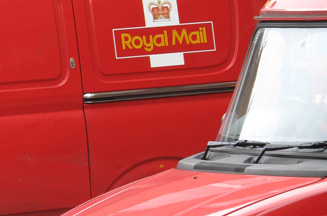
Following last year's savaging of British Airways, Royal Mail is the latest British institution to come under the cosh.
Since 2007, the service has been crippled by a series of debilitating strikes, with the latest starting in the South East and slowly spreading nationwide.
Since 19 June, the Communication Workers Union has arranged local strikes somewhere in the country every other day, leading to more than 30 days of industrial action so far. The union is now gearing up to hold a ballot of its 120,000 members on whether to hold a pre-Christmas national strike.
Royal Mail admitted that as many as one in nine pieces of mail has been delayed, possibly terminally, in the strikes, with far-reaching consequences for small- to medium-sized businesses.
Dissatisfaction with Royal Mail is increasing as marketers are working hard to retain business customers. Last year, it ran a high-profile 'Partners for Growth' campaign, targeting the UK's 4.3m SMEs, but this hard work may have been undone.
Bosses must also contend with a long queue of politicians looking to put the boot in. Lord Mandelson drew up plans to privatise the organisation when he returned to government in 2008, but backed down to keep Labour left-wingers onside.
We asked Jackie Stevenson, founding partner at Brooklyn Brothers and a former managing director at Proximity, which handles Royal Mail's direct account, and Alex Batchelor, a former marketing director at Royal Mail, whether the brand can deliver a turnaround.
Diagnosis Two industry experts suggest how Royal Mail can post an improvement
Jackie Stevenson founding partner, Brooklyn Brothers
For a service that is often talked about as old-fashioned and outdated, the demand for what Royal Mail has to offer has never been greater - and it's only going to grow.
Only last week, I found out about a 60%-off sale, browsed it and bought two items online, all on the bus on my way to work. 24/7 shopping is here to stay, and businesses and consumers alike need a trusted carrier to deliver our finds.
So why isn't our national carrier fighting off the competition to claim the lion's share of this growing sector?
There are clearly operational issues that need to be addressed, and living under the shadow of a £10bn pension deficit can't be easy.
Somewhere along the line, the Royal Mail has lost our hearts, as well as well as our minds. It is our national carrier, and provides an amazingly good-value service to the farthest-flung ends of our island. From a brand perspective, it should celebrate that and make more of its heritage and nationwide offer while modernising its service on the ground.
Remedy
- Regain some pride and position the brand as the nation's carrier.
- Celebrate the local postman, as well as the obviously good services it offers the business sector. It's the real point of difference.
- Get local with the way Royal Mail markets itself, providing information on the ground about the people and service in immediate neighbourhoods.
- Don't try to be all things to all people. Is it really feasible to champion consumer rights to a great nationwide postal service, while competing for big corporate contracts?
Alex Batchelor chairman, Marketing Society
The Royal Mail brand is at an interesting stage in its development.
Now that 350 years of monopoly and state ownership have almost come to an end, the organisation needs to be permitted to compete in real markets for communication, delivery and data.
Royal Mail has an amazing history of innovation. It helped develop banking and communications for an increasingly industrialised Britain, spawning BT and the Post Office Savings Bank along the way.
It delivers 23bn items a year, six days a week, to 27m homes and businesses, with incredible accuracy and speed.
Its brand image with the general public is a strange mixture of residual goodwill and erroneous nostalgia. However, there is a limit to how much this will help it with the companies that actually pay for its services.
Royal Mail is primarily a B2B operation. It competes as a media owner for advertising money with Sky, ITV, newspapers and radio; as a delivery organisation for eBay and Amazon with companies including CityLink, TNT, UPS and DHL; and as a data provider with companies such as Google.
Remedy
- Royal Mail's current TV campaign, as well as initiatives such as the relaunched Mail Media Centre and handheld scanners on delivery, are a great start.
- If Royal Mail is going to succeed, it needs to deliver on its promise as an essential tool for delivering growth in the UK economy.
- It also needs a government that makes its mind up and a regulator and unions that allow it to change.


